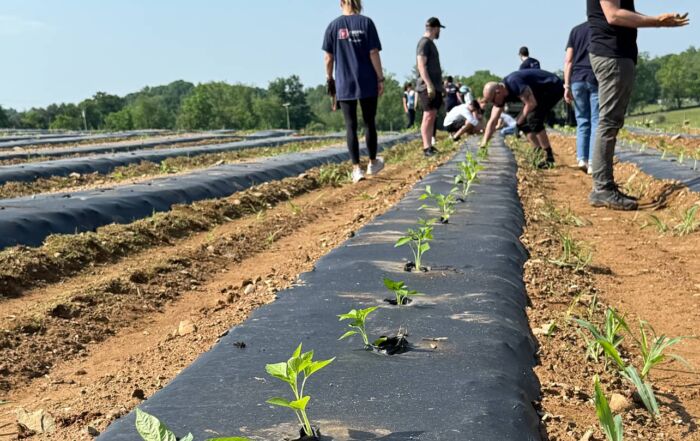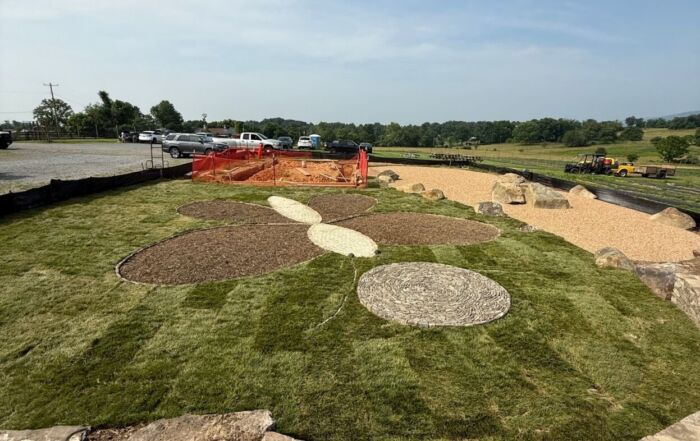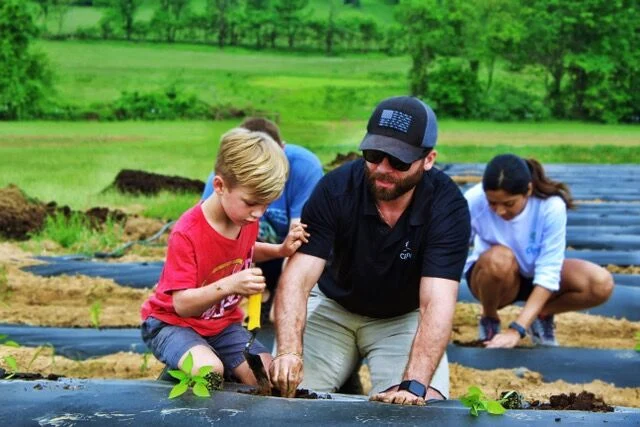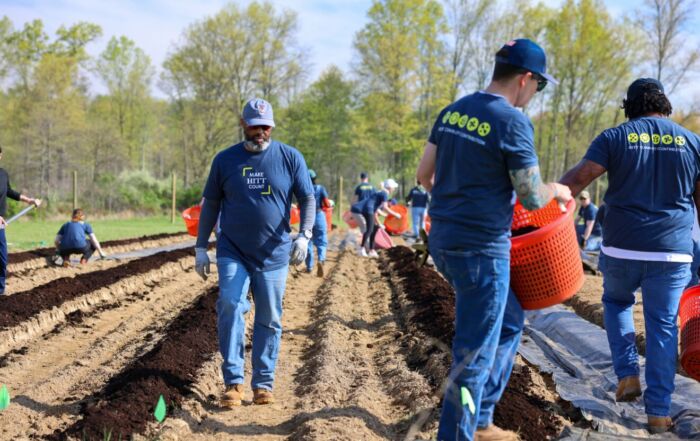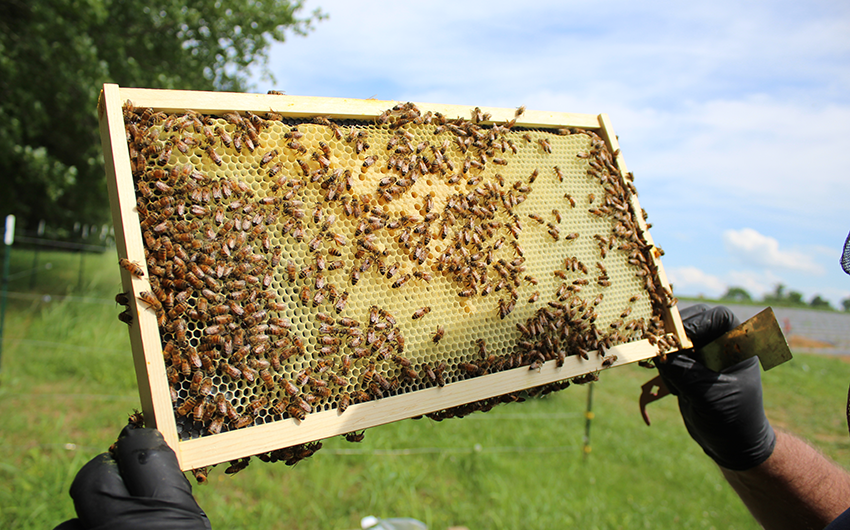
January 19, 2021
As many of you know, we have seven beautiful, colorful honeybee hives at the JK Community Farm. Our beekeeper, George with the Beekeepers Farm, LLC often uses the bees from our hives to help grow the honeybee population in Loudoun County. We started to think about what else we can be doing to support our local pollinators, as they do so much for the food that we grow. Did you know that pollinators like bees are responsible for bringing us one out of every three bites of food?!
Honey bees have been negatively impacted by a condition called colony collapse disorder which is killing off large numbers of honey bees. With this, solitary bees have become even more important as pollinators. Many pollinator populations are in decline, and this decline is attributed most severely to a loss in feeding and nesting habitats. Native bees nest in hollow logs, dead trees and in the ground. With construction, and limited conservation efforts, native bees have fewer places to nest. By creating special nesting sites like bee hotels, you can accommodate many different species of bees. Fortunately for us, our friends at Mobile Hope let us know about Change X, a community grant opportunity funded by Microsoft. After submitting our project and receiving funding, we worked with a few wonderful volunteers to construct the hotel.
Bee hotels often attract mason bees, orchard bees, and leaf cutter bees, places for solitary bees to build their nests. These bees do not make honey, or live in a hive. Solitary bees lay their eggs in small holes. These native bees are referred to as solitary bees because once the female mates, she is on her own. These bees do not have a hive structure or work as a team like honey bees. We have found that bee hotels can be as simple or elaborate as you want, but with our food and agriculture education programming, we were drawn to the large beautiful bee hotels.
We located a sunny, south facing location out of the wind for our bee hotel. The hotel will be a part of our future food education nature walk and out of the way from heavy traffic to give the bees plenty of space. The design we constructed is about 6ft, by 6ft and is made without any pressure treated wood. It was important for us to have an over hang roof to keep the bees and their nests dry, and free from mold. We will be able to tell when bees are using our hotel when they create a mud door to cover the entrance. When we see a mud or leaf doors, this means that a female bee has laid an egg inside. After the bee hatches, it will eat a supply of pollen until it is ready to break through the mud and fly away.
Solitary bees nest in the Spring and early Summer, so until then…we wait! and hopefully bees will arrive! We invite you to join us at the JK Community Farm this season to watch for their arrival.
P.S for those wondering, (like Farmer Mike who is allergic) it is very unlikely for you to be stung by a solitary bee, unless you step on them barefoot or try to swat at them.

